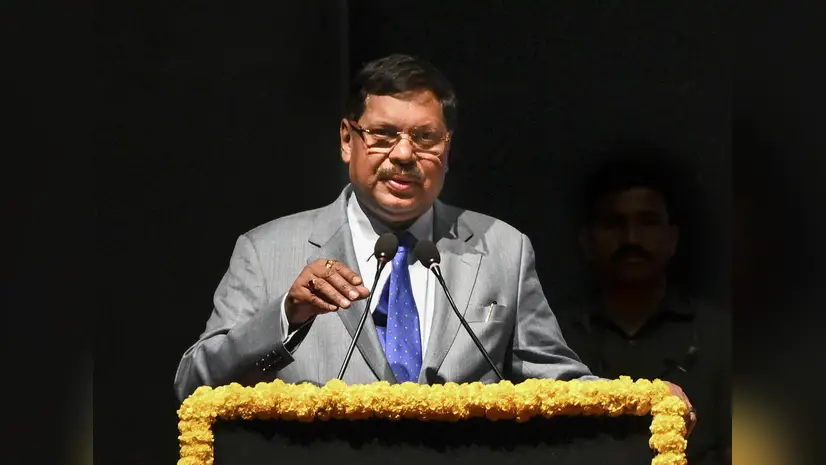- Courses
- GS Full Course 1 Year
- GS Full Course 2 Year
- GS Full Course 3 Year
- GS Full Course Till Selection
- Answer Alpha: Mains 2025 Mentorship
- MEP (Mains Enrichment Programme) Data, Facts
- Essay Target – 150+ Marks
- Online Program
- GS Recorded Course
- Polity
- Geography
- Economy
- Ancient, Medieval and Art & Culture AMAC
- Modern India, Post Independence & World History
- Environment
- Governance
- Science & Technology
- International Relations and Internal Security
- Disaster Management
- Ethics
- NCERT Current Affairs
- Indian Society and Social Issue
- NCERT- Science and Technology
- NCERT - Geography
- NCERT - Ancient History
- NCERT- World History
- NCERT Modern History
- CSAT
- 5 LAYERED ARJUNA Mentorship
- Public Administration Optional
- ABOUT US
- OUR TOPPERS
- TEST SERIES
- FREE STUDY MATERIAL
- VIDEOS
- CONTACT US
ST STATUS FOR HATTEES IN HIMACHAL
ST STATUS FOR HATTEES IN HIMACHAL
13-02-2024
Recently, the Himachal Pradesh government has issued a notification granting Scheduled Tribe (ST) status to the Hatti community in the Trans-Giri area of Sirmaur district.
About the Hattee Tribe
- The Hattee Tribe resides near the Himachal-Uttarakhand border along the Giri and Tons rivers, once part of Sirmaur's royal estate.
- The Hattee name stems from their tradition of selling goods at local markets known as 'haat'.
- They follow a strict caste system. The Bhat and Khash are upper castes, with the Badhois beneath them, discouraging inter-caste marriages.
- Governance is under the Khumbli council, similar to Haryana's Khaps, retaining authority over community matters despite the introduction of the Panchayati Raj System.
Reason for this demand
- There are two Hatti clans, in Trans-Giri and Jaunsar Bawar, both had remained the part of erstwhile Sirmaur princely state and both areas have unique similarity in social, cultural as well as geographical aspects. Residents of the Trans-Giri area were demanding ST status similar to the Jaunsar-Bawar area in Uttarakhand, which received ST status in 1967 itself.
- Due to topographical disadvantages, the Hattis living in the Kamrau, Sangrah, and Shilliai areas of Himachal Pradesh have lagged behind in both education and employment. Hence ST status will guarantee upward mobility.
Opposition:
- The Gujjar community in Sirmaur district, the only other ST group in the area, strongly opposes including the Hattees, fearing it will limit their benefits.
- SC communities also oppose it, claiming Hattees, mostly from forward castes, perpetrate atrocities against them, and inclusion will embolden them.
Process of Inclusion under ST list
- Proposal originates from the State or UT government.
- Processing: Sent to Union Tribal Affairs Ministry, then to ORGI (Office of the Registrar General of India).
- Role of National Commission for Scheduled Tribes: ORGI approves proposals to go to the National Commission.
- Approval: After this consent, Cabinet amends the Constitution (Scheduled Tribes) Order, 1950.
- Final Decision: President's office issues notification under Article 342, making the final decision.
About Scheduled Tribes in India:
-
As per the 1931 Census, Scheduled Tribes were referred to as "backward tribes" in "Excluded" and "Partially Excluded" areas. The GoI Act of 1935 advocated for representation of these "backward tribes" in provincial assemblies.
- The Constitution initially lacked clear criteria for recognizing Scheduled Tribes.
- Later, Article 366(25) of the Constitution outlined the process for defining Scheduled Tribes based on provisions in Article 342.
- Article 342(1) empowers the President, after consultation with the Governor in the case of a State, to specify tribes or tribal communities as Scheduled Tribes through a public notification.
Benefits of Including Communities in ST List:
- Inclusion enables reservation in educational institutions as per Article 15(4).
- It provides reservation in posts and services under Articles 16(4), 16(4A), and 16(4B).
- STs gain representation through reserved seats in the Lok Sabha as per Article 330.
- Reservation of seats for STs in Panchayats under Article 243D.
Legal Provisions for STs in India
-
Constitutional provisions (Articles 15(4), 16(4), 19(5), 46, 244, 275) safeguard Scheduled Tribes' rights.
- Scheduled Tribes and Other Traditional Forest Dwellers (Recognition of Forest Rights) Act, 2006 recognizes forest rights.
- Scheduled Castes and Scheduled Tribes (Prevention of Atrocities) Act, 1989, prevents atrocities against STs.
- Panchayats (Extension to Scheduled Areas) Act, 1996, extends self-governance to Scheduled Areas.
- National Commission for Scheduled Tribes (NCST) Act, 2003, safeguards ST interests.



